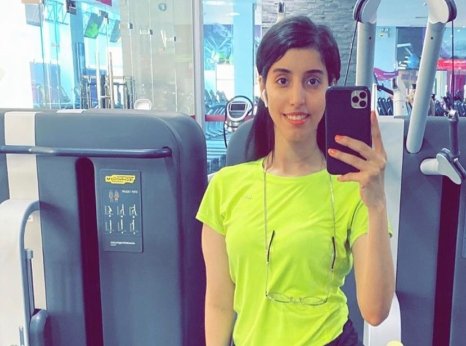Saudi Arabia: Manahel Al-Otaibi Subjected To Torture In Saudi Prison

Manahel al-Otaibi’s case was first heard by the Criminal Court in Riyadh. On 23 January 2023, the Criminal Court ruled that it had no jurisdiction to try this case, and referred the case to the notorious terrorism court, the Specialized Criminal Court (SCC) in the capital, Riyadh. The SCC has routinely used vague provisions under the anti-cybercrime and counter-terror laws equating peaceful expression with “terrorism”. Amnesty International has documented how every stage of the SCC judicial process is tainted by human rights violations. Since 2018, Saudi authorities have arbitrarily detained Saudi women’s rights activists who campaigned for the end of the male guardianship system and the right to drive in Saudi Arabia. Women’s rights activists reported facing sexual harassment, torture and other forms of ill-treatment during interrogation. Those released are under travel bans and face restrictions on their freedom of expression.
Both of Manahel al-Otaibi’s sisters have also faced charges related to their campaigning for women’s rights. In the same case against Manahel al-Otaibi submitted by the public prosecution to the Riyadh Criminal Court, the Public Prosecutor accused her sister Fawzia al-Otaibi of leading “a propaganda campaign to incite Saudi girls to denounce religious principles and rebel against customs and traditions in the Saudi culture” and using a hashtag “which promotes liberation and the fall of male guardianship”. The court document, reviewed by Amnesty International, states that a separate order would be issued for Fawzia al-Otaibi’s arrest. Their other sister Mariam al-Otaibi, a prominent campaigner against male guardianship in the Kingdom, has previously been charged and detained for her women’s rights activism, and is currently under travel ban.
In a similar case to Manahel al-Otaibi’s, on 25 January 2023, the Specialized Criminal Court (SCC) resentenced Salma al- Shehab, a Leeds University PhD student and mother of two, to 27 years in prison, followed by a 27-year travel ban upon appeal. The SCC convicted Salma al-Shehab of terrorism-related offences after a grossly unfair trial for publishing tweets in support of women’s rights.
Nearly all human rights defenders, women’s rights activists, independent journalists, writers and activists in the country have been arbitrarily detained, put through prolonged and unfair trials – most often by the SCC – or released but under conditions that include travel bans and other arbitrary restrictions to their fundamental rights, such as to conduct peaceful activism.
As of January 2024, Amnesty International has documented the cases of 69 individuals who had been prosecuted solely for exercising their rights to freedom of expression, association and peaceful assembly, including human rights defenders, peaceful political activists, journalists, poets and clerics. Of those, 32 were prosecuted for peacefully expressing their opinions on social media. Amnesty International is aware that the real number of such prosecutions is likely much higher.